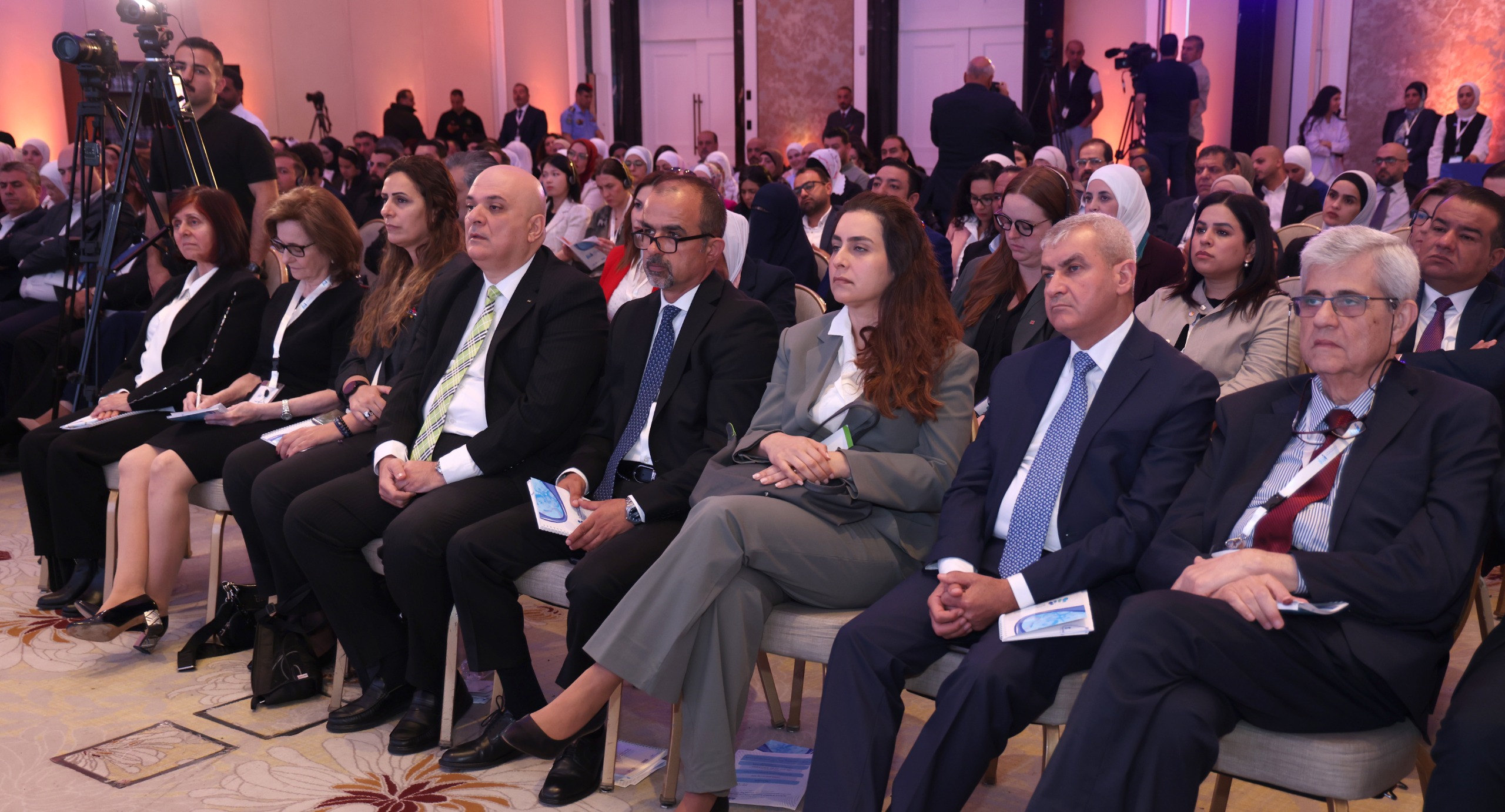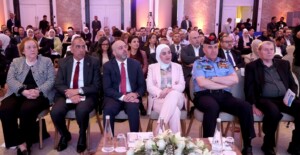We Communicate For Happy Children
 The National Council for Family Affairs in Jordan: The Second National Conference on Early Childhood Development
The National Council for Family Affairs in Jordan: The Second National Conference on Early Childhood Development 
15 May 2025
Under the theme “Safe Growth, Lifelong Learning” the Arab Network for Early Childhood (ANECD) participated in the Second National Conference on Early Childhood Development. The conference was organized by the National Council for Family Affairs in collaboration with Plan International and supported by the Van Leer Foundation, in Amman, Jordan.
Over the course of two days — May 6 and 7, 2025 — a total of 200 representatives gathered. They came from national and international institutions, local community organizations, and included experts, specialists, decision-makers, educators, researchers, and stakeholders from Arab and other countries.
The aim was to:
• Enhance and support early childhood development and education, aligning with the core pillars of Jordan’s Economic Modernization Vision (2023–2033) and promoting investment in this sector for sustainable development.
• Exchange knowledge and foster collaboration among stakeholders (governments, academics, and organizations) to improve early childhood policies and programs.
• Develop evidence-based policies to enhance the quality of services provided to children and their families.

Key Discussion Themes
ANECD’s Participation
The ANECD General Coordinator, Dr. Ghassan Issa, spoke in a session titled “Multisectoral and Multidisciplinary Approaches to Early Childhood Development: Lessons from Global Practices”. He presented ANECD’s extensive experience in ECD, building on 22 years of networking prior to its formal establishment in 2014, following the founding of the Arab Resource Collective (ARC) in 1989.
Dr. Issa emphasized ANECD’s conceptual foundations:
• A holistic, integrated approach to early childhood development, care, protection, and education.
• Participatory community engagement.
• Networking as a precursor to institutionalization.
ANECD’s Key Achievements
Issa reviewed ANECD’s key achievements, foremost among them supporting, motivating, and developing national networks, working groups, and task forces in Jordan, Lebanon, Palestine, Egypt, Tunisia, and Morocco. This cross-border effort unites the efforts of ANECD.
He also presented ANECD’s “cross-border achievement”: the Arab Working Group for Early Childhood Research. This group consists of 20 researchers who conduct studies aimed at strategies, policies, and programs for early childhood in the aforementioned Arab countries.
Additionally, Issa listed ANECD’s flagship programs, which ANECD hopes to expand across Arab countries using the same cross-border approach to consolidate efforts. These programs include:
• The HEPPP Program (Health, Early Learning, Protection, and Parenting).
• “Urjouha” website and digital library, which support parents with books, songs, videos, and articles. Issa explained that ANECD plans to create a dedicated page on Urjouha for each national network and working group.
• “Nawwara” platform, focused on mental health and psychosocial support.
• The SECD Curriculum: the translation and adaptation of the “Science of Early Childhood Development” curriculum from Red River College (Canada) for training professionals.
Issa also addressed several challenges facing ANECD’s work. The foremost is managing national and regional networks amid wars and crises while ensuring their sustainability. Other challenges include weak interest in regional collaboration and donor fragmentation, with many donors focusing narrowly on children and families. The most important challenge is the absence of a rights-based approach in work with children and families.
In conclusion, the conference issued several key recommendations:
• Expanding the experience of family-friendly workplaces in the public sector and broadening partnerships with national and international entities to establish child-friendly parks across all governorates of Jordan.
• Digitizing licensing, monitoring, and evaluation procedures in the nursery sector, and activating AI programs to produce content for service providers.
• Strengthening the capacity of nursery staff in self-assessment and continuous improvement.
• Integrating mental health and psychosocial support into childcare programs in nurseries. Emphasizing the importance of having psychological counselors in nurseries and primary schools, including parents in child mental health support plans, and supporting community nurseries in underprivileged areas to reduce disparities in access opportunities.
